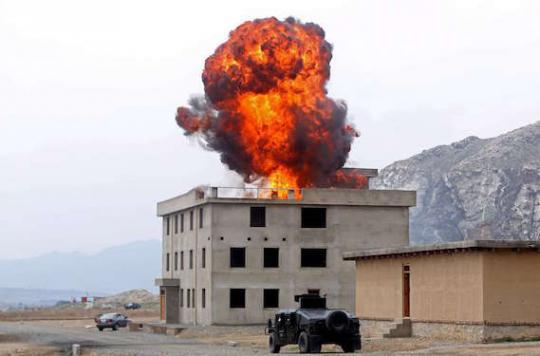Being exposed to explosions, as military personnel can be in an operation, has long-term consequences on the brain, according to a study from the University of Washington in Seattle.

Even when not directly affected by explosions, soldiers’ brains can suffer trauma, the consequences of which are only visible in the long term. These “mild head injuries” (TBI) – that is to say, loss of consciousness or confusion lasting less than 30 minutes – can indeed lead to neurodegenerative disorders such as chronic traumatic encephalopathies, or even dementia. ‘Alzheimer’s. These BITs are the most common injury for veterans returning from Iraq or Afghanistan.
According to a study published on January 13 in the review Science Translational Medicine, a cumulative number of explosions causes a pronounced alteration of the brains of veterans, in particular the cerebellum. This part of the brain plays an important role in motor control and, to a lesser extent, in language or attention.
Older studies had previously identified the impact of a surge wave caused by an explosion – what scientists call the “blast effect” – on the brain. But no one had so far determined what the mechanics are. Researchers at the University of Washington, Seattle, therefore examined a cohort of 33 veterans who reported experiencing between 1 and 102 blast effects while on duty, to determine whether a greater number of exposure to explosions was associated with changes in brain metabolism.
Conditions reproduced in laboratory mice
The researchers focused on the cerebellum, whose vulnerability to explosions had already been demonstrated in the past. Results: The researchers were able to show a reduction in carbohydrate metabolism in the cerebellum of veterans who had suffered a significant number of explosions.
“This glucose metabolism reflects the activity of nerve cells. Our imagery shows that the cells of the cerebellum of veterans are not functioning well, ”explains Elaine Peskind, professor of psychiatry and behavioral sciences at the University of Washington, and co-author of the study. And all of these changes in metabolic activity in the cerebellum are unrelated to other factors like post-traumatic stress disorder, depression, or alcohol.
By reproducing the conditions of an explosion on laboratory mice, the team then revealed a small leak in the blood-brain barrier, usually tight to microbes and toxic and which protects the brain. The experiments also show an increase in the concentration of several proteins. First results which could lead to a better understanding of the role of the cerebellum in light cranial trauma.
.
















